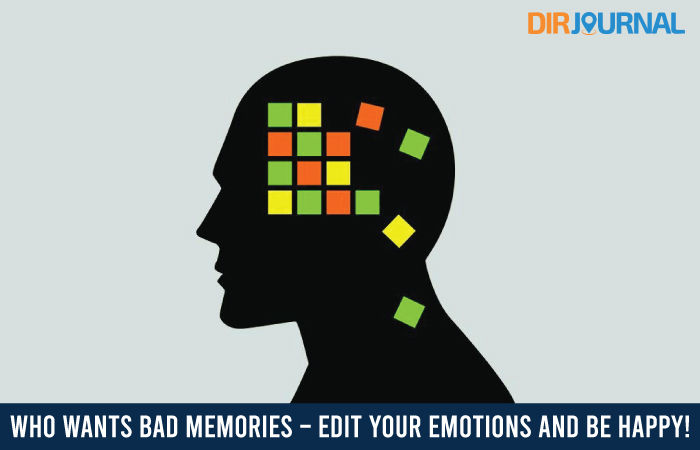What is the world coming to? For me, emotions have always been something not in our control. Wonder what to think now!
These scientists are surely God-sent. They can take nature into their hands and successfully mould things the way they want. We all experience various emotions; happiness, sadness, grief and a million others every day of our lives. Bad memories bring on negative emotions, and we suffer the pain of recollecting the events.
Did you know that illnesses of the mind are the worst culprits for our general health? They can show their impact on us physically, leading to high blood pressure, diabetes, dementia and many other health issues. From ancient times, we have been told that the miracle drug to cure all diseases is “happiness.” But frankly, how many of us can say that we have complete control over our mind or emotions?
I remember seeing a friend frequently wake up in the middle of the night and cry. The reason – this friend was unfortunate enough to have undergone some traumatic events in the past, and those thoughts used to play on the mind at night. Each one of us has a tale to tell but not all of us are strong enough to take in our stride what fate has in store for us.
The good news is that now you can. You can now control your thinking, completely erasing the bad memories and retaining only the happy ones. No more wallowing in self pity, remembering the past. Scientists have recently discovered that they have the capacity to erase certain memories by playing around with a particular substance in the brain. They can make you forget a traumatic event, a constant fear or even a bad habit. Any smokers or alcoholics here?
Brooklyn has taken the lead in this research, where researchers have proudly announced their achievements. They revealed that a single dose of an experimental drug delivered to areas of the brain critical for holding specific types of memory; such as spatial knowledge, motor skills or emotional associations, has the power to actually erase them.
The drug that is sent to the brain, blocks the activity of a substance that helps the brain retain the information it learns. If used in higher doses, it has the potential to ward off dementias and other memory problems.
So far, scientists have done their studies only on animals but they say since memory problems work similarly in humans, they are confident of identical results in their future human tests.
Research suggests that brain cells activated by an experience keep one another on biological speed-dial, just like a group of people that are joined together by witnessing a traumatic or unforgettable event. You just call on one and word quickly goes to the larger network of cells, each cell apparently adding some detail, like the smell, sound, sight etc. The brain retains this memory by making sure the connections and communication between these cells is more efficient.
PKMzeta is a molecule that is found to be present and activated in cells when the cells create a lasting communication or connection with a neighboring cell. These PKMzeta molecules are found to stick to themselves, just like troops occupying a small peninsula, and strengthen the connection between brain cells. Then they stayed there indefinitely as sentries guarding our mind.
After finding out how PKMzeta works in our brain, scientists, then checked how it worked in living animals. Andre Fenton, who studies memory in mice and rats, had found that once these animals were taught certain things like avoiding a mild electric shock for their feet by moving around their room, they never forgot these teachings and always remembered how to avoid the shock. But when these same animals were injected with a drug called ZIP directly into their brain, they forgot everything they were taught almost immediately.
The rats and mice forgot what was taught to them because ZIP interfered with PKMzeta molecules. One dose of ZIP also made these rats forget a strong hatred for a particular taste that made them sick just a few months earlier.
Todd Sacktor, a neuroscientist leading the team at SUNY Downstate Medical Center in Brooklyn says, “If the molecule is as important as it appears to be, you can see the possible implications.”
All these findings make the scientists confident that it is not long before humans can be injected with a drug to forget forever whatever bad memories are haunting them, while retaining all other memories in perfect condition. Even if it actually takes years for us to be confident about using such drugs, they can actually help millions of people suffering from trauma panic attacks and other mental illnesses.













